Whenever Bachir Abeid, PhD student in Mechanical Engineering and 2023 awardee of the ME Azarkhin Fellowship Award, returns home to the Sahrawi refugee camp in which he was raised, his mother questions him. “Is it work, or is it vacation?” she asks. “It’s both,” he always tells her.
The camp, Smara, is one of five settlements in Algeria’s Tindouf Province that were established after war in the region displaced many Western Saharans. “The idea was that this was going to be a temporary situation, until some sort of resolution comes to the conflict,” Bachir explained, but the situation has become one of permanent temporariness. Over 47 years later, Smara and others now have electricity, cell service, and populations in the tens of thousands, but endure constraints on mobility, education, and autonomy.
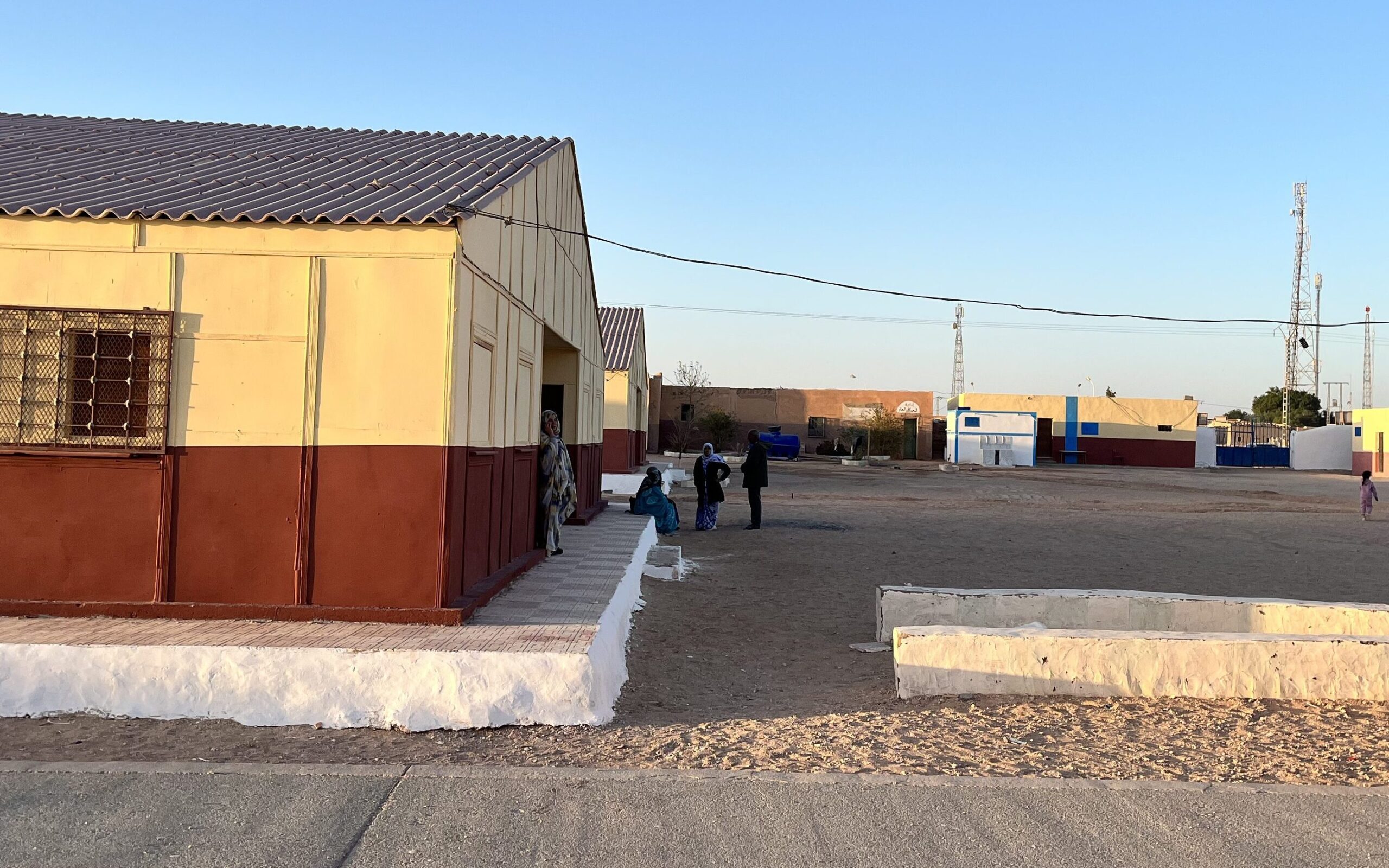
In these camps, the only formal educational opportunities for children are primary (or elementary) schools. From sixth grade on, students are sent abroad, to boarding schools around Algeria. Though, as Bachir notes, Algerian universities provide limited opportunity for refugees to advance in their careers within the country.
“We can’t work in Algeria in any official capacity, as refugees,” he said. “You either become a mechanic or a merchant, or a teacher, but that is minimum wage. It near impossible to live on that alone.” In the summer after his sophomore year of high school Bachir’s education started on a different trajectory.
He was home in Smara with his best friend, working on a car they were building. “My niece shows up, ‘Oh, there are a couple of foreigners waiting for you’… So I go back home to see what’s going on.” When Bachir arrived at his family’s house, he found two young Norwegian students, alumni of the United World Colleges (UWC), waiting for him. They had come to explain about the UWC and to encourage Bachir to apply.
As was explained to Bachir, the UWC is “an international network of schools and educational programs with the shared aim of making education a force to unite people, nations and cultures for peace and a sustainable future.” Eighteen schools exist around the world that are governed by UWC’s international office in London. Each school offers scholarships for students from regions of the world in which access to quality formal education is not widely available.
“The UWC opens the door to broader opportunities,” Bachir told us. Particularly, the schools offer International Baccalaureate (IB) programs, which are sequences of high-level college preparatory courses designed for outstanding high school students. These provide a competitive edge to many students in college admissions pools around the world.
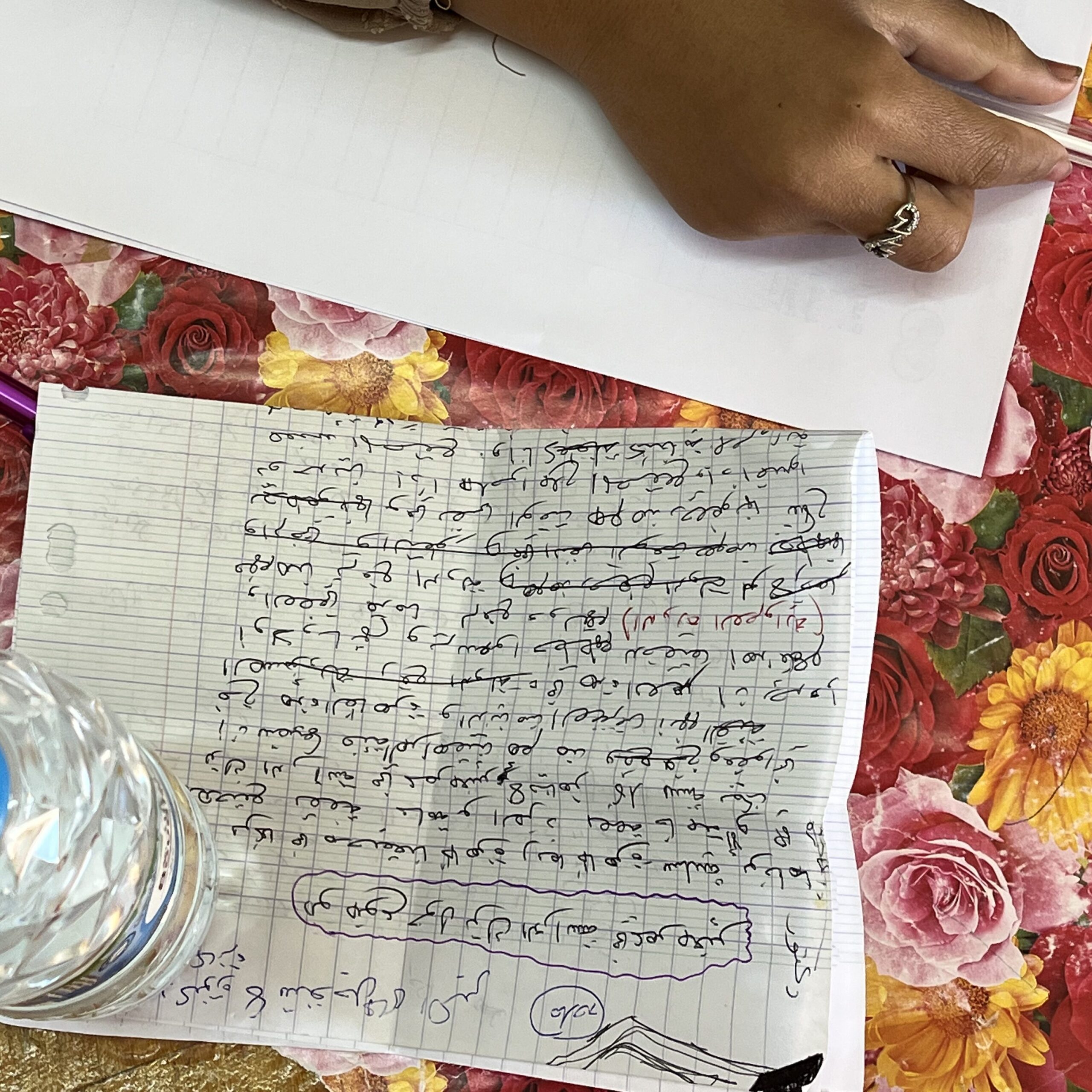
“I show up to this examination center,” Bachir recanted. “I took the English and math exams, and a few hours later, I got an interview!’” The interview was intended to assess Bachir’s openness to foreign cultures and to other ways of life, to which Bachir expressed, “I am not here to judge anyone’s way of thinking, living, or praying, so long as we live in peace.”
Ultimately, Bachir was accepted into the UWC and offered a full ride scholarship to a school in Costa Rica. “The biggest challenge for me was just how far it was, how different it was,” Bachir said. Though he had spent several years living away from home, in boarding schools around Algeria, Costa Rica was much farther and culturally different. “The first few months were a significant change to anything I had ever known. I had to adjust to the fundamental ways that people behaved, how they talked, how they dressed. It was definitely hard to make this transition.”
Eventually, Bachir successfully adjusted, learned English, and thrived academically, making the most of the opportunities that his UWC scholarship offered him. “They provide a support structure that you would not have otherwise had. At home, college is not even an option. Now, you have a college council and advisors. You can take SATs and apply to US schools. You have people who help you navigate these complex systems of higher education, and want to see you succeed.”
With the encouragement and support of the UWC network, Bachir capitalized on this opportunity of even higher education.
Bachir was accepted to Brown University in 2013, where he earned his bachelor’s degree in mechanical engineering, and later accepted a position at Veryst Engineering, an engineering consulting firm outside Boston. And through these several years, in tandem with his education and his professional work, Bachir stayed involved with the UWC by volunteering.
After graduation, he had been contacted by other former UWC students who had entered into national committee roles and now managed local UWC tiers. “They emailed and they said, ‘Hey, congratulations on graduating from UWC. Congratulations on getting into Brown. Do you want to help?’”
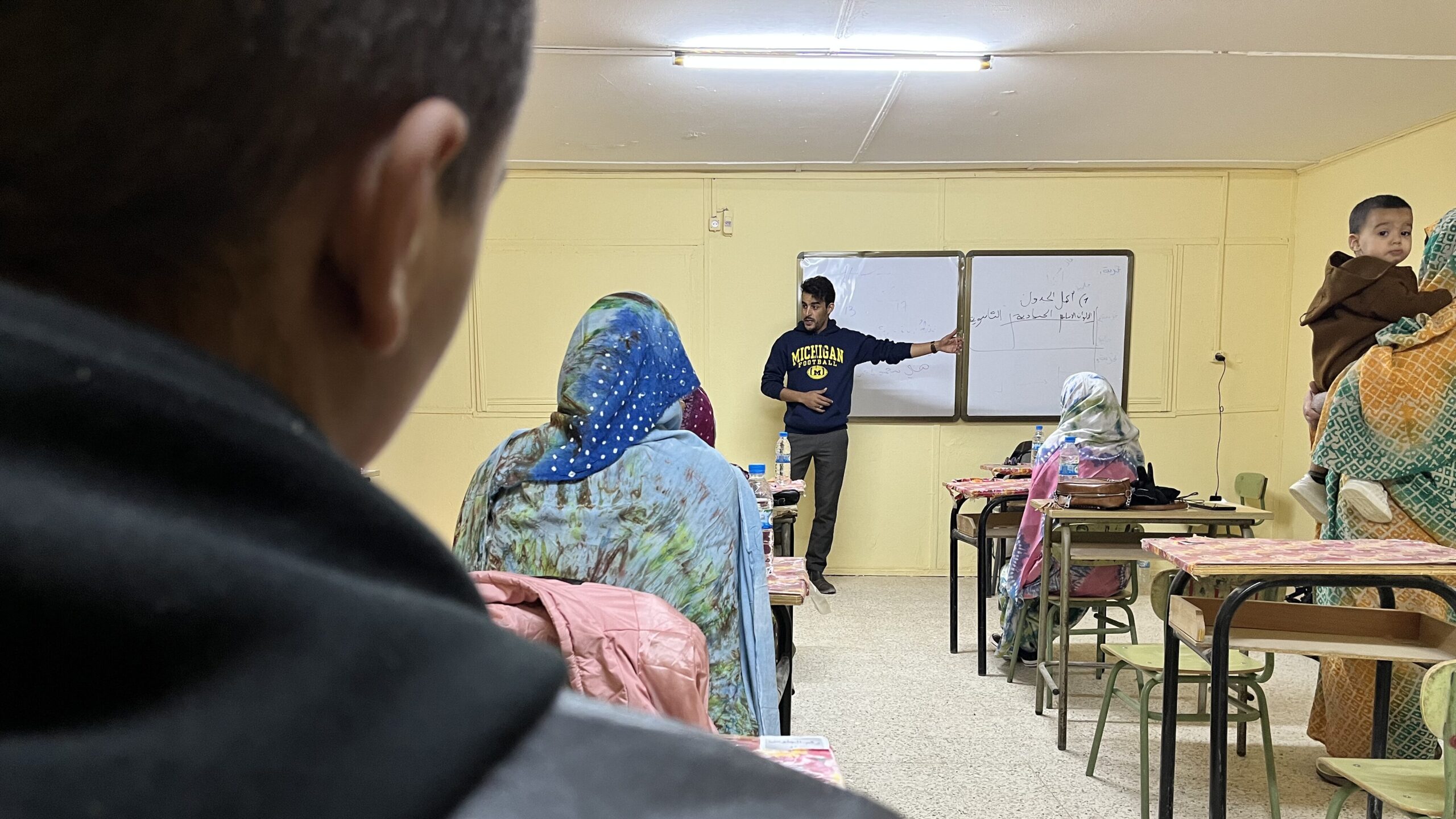
Gradually, Bachir began meeting with exceptional students on his trips back home. He would explain UWC scholarship opportunities, create entrance examinations, and assess students for English and math proficiencies, just as a few young Norwegian students once did for him. “It’s too expensive for UWC to go to these camps and pick students,” so Bachir and other volunteers step in to guide promising students through the UWC selection process, from start to finish — and even after.
Once students are accepted into the UWC and awarded scholarships, volunteers like Bachir take charge of their resettlement. They ensure that students have all the necessary educational and personal identification documents in order, send those documents to international consulates to obtain required visas, coordinate the students’ travel arrangements, and finally see the students off at the airport. And even then, Bachir continues on as a mentor.
His students text and call him from around the world, wanting to talk about their struggles and their successes, their fears and their hopes. “The hardest part is the cultural shock,” Bachir told us, but he noted that the results are often remarkable. “One minute, I am working on their passports, and then, a few months later, they’re having a conversation in English telling me about their new experiences. And you’re like, wow! It can all happen so fast.”
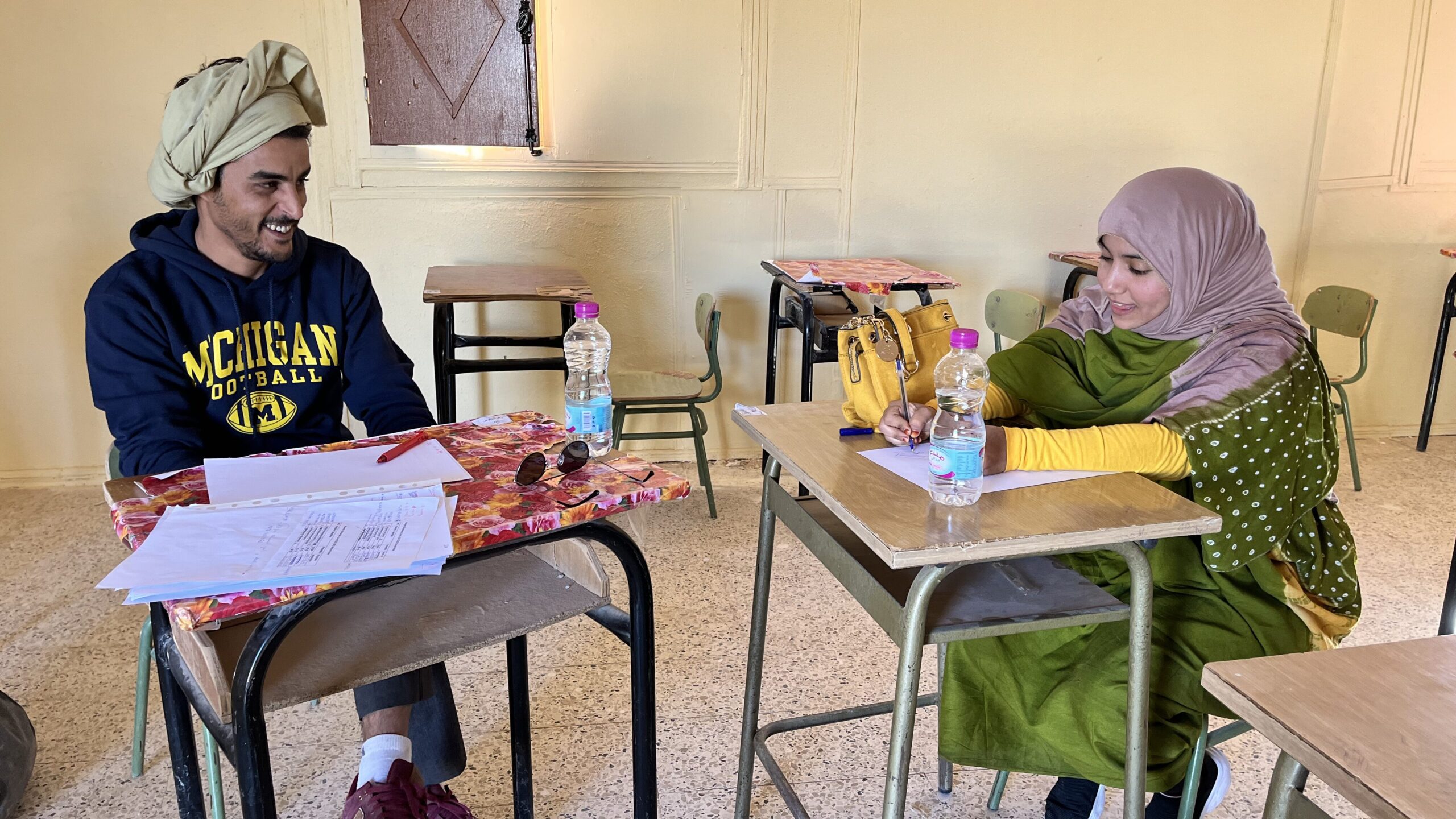
Bachir undertakes all of his responsibilities with the UWC on a purely voluntary basis. “All of this work is entirely volunteer, using my personal time and finances. It takes a lot of patience, such as being on long phone calls to arrange travel documents and scholarships. It feels good to help though.” How he finds the time, however, is a mystery.
In U-M ME, Bachir is working full-time studying high-rate material characterization in assistant professor Jon Estrada’s Experimental Soft Mechanics Lab. “The idea is if you shoot a high energy laser pulse inside a material that is soft and transparent, like a hydrogel, that has a lot of water in it, it creates a bubble, because the laser is vaporizing the water in the material,” he explained. “We take high speed images of the bubble behavior inside the material, up to 10 million frames per second, as the bubble expands and collapses.”
The bubble’s formation and subsequent collapse will bear certain characteristics that researchers can use to better understand “how materials behave at ultra-high speeds.” Bachir explained, “It’s essentially a novel high-rate testing technique for materials.”
Out in the real world, this research could help to characterize blood clots and to support blast analyses or ultrasound surgery on human tissues. “Like football helmets crashing, but worse, what does that do to the brain?” Bachir offered.
Speaking about why he gives so much to the UWC now, while still vigorously working his way through academia, he said, “It’s rewarding, being able to give back this early in my life, and being able to repay some of the debt I owe to my community and to those who helped me along the way, while making a lasting difference.” This is a sentiment that also appears to drive Bachir’s PhD work. “When you show me a problem that no one has found a solution for,” Bachir explained, “I think, can I make a difference here?”
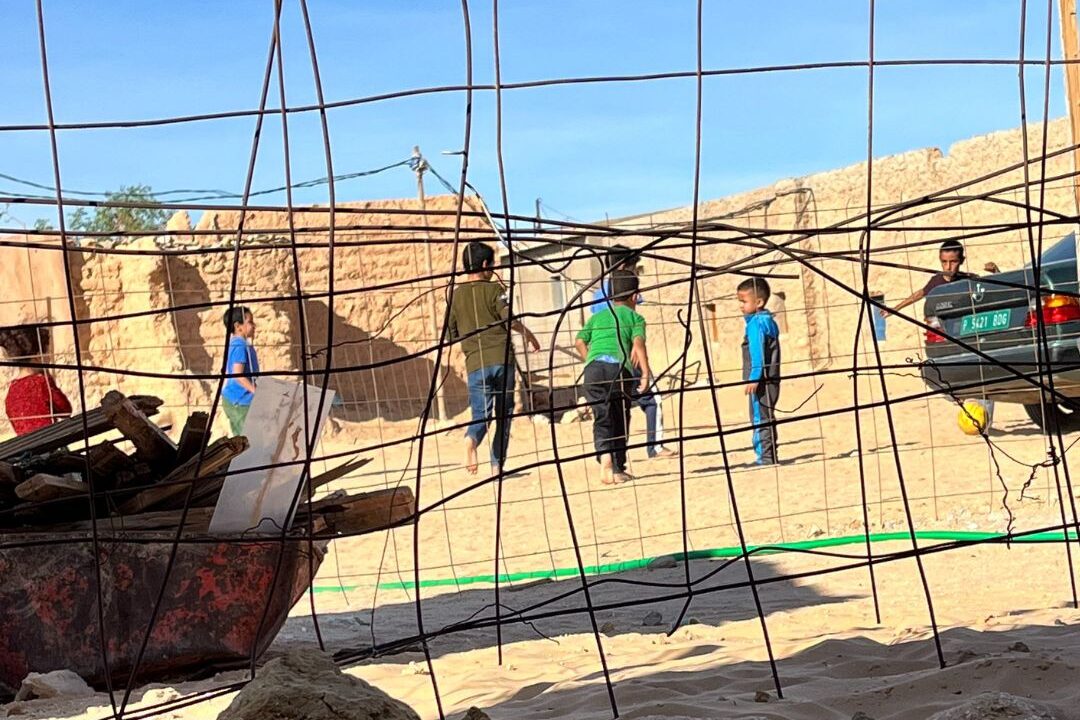
So Bachir explains to his mother that his trips home are for vacation and for work, because the work never really stops. “When I try to explain to my mom: work or not work?” Bachir said. “All she knows is her son is coming. He is coming to see her. And so when I say I have work, she doesn’t understand. If I’ve been away for a year, working, why would I come home and work more?”
At times, Bachir feels the distance that his hard work and professional success have inserted between himself and his home. “People at home didn’t have the same educational opportunities I had, and so… What is college? What is Brown? It has no significance to them,” he said. But mostly, his home “still has the same feel to it.” “No matter where or how far you go, you’re going to come back,” he said, “because your childhood was there, your first soccer game, your first crush, your first everything, your best friends. It’s where my mom is… my roots are there.”
In the end, Bachir may have left his childhood home in Smara, but through all of the transitions, the triumphs, and the future he’s pursuing now in U-M Mechanical Engineering, and the continued work he does with the UWC, one thing remains constant: his sense of where he comes from and his belief in paying forward the opportunities that were once given to him. “I am not here just for me,” he said.
To learn more about UWC and to donate to Bachir’s work on the UWC National Committee of Refugees from Western Sahara, visit this webpage.